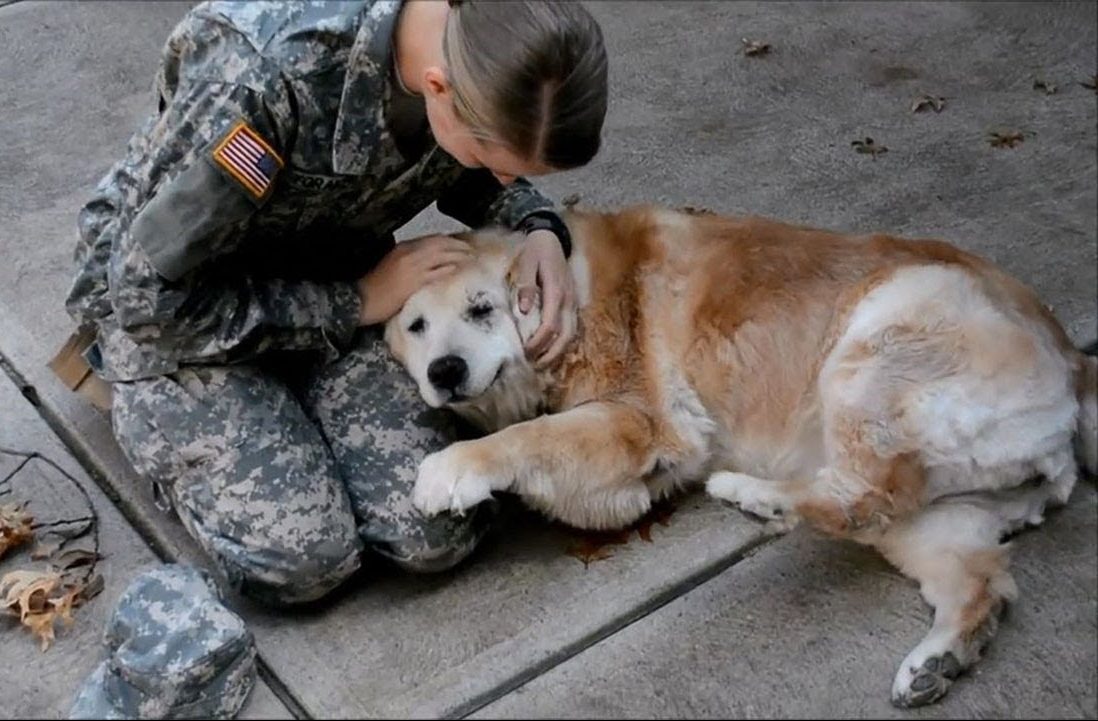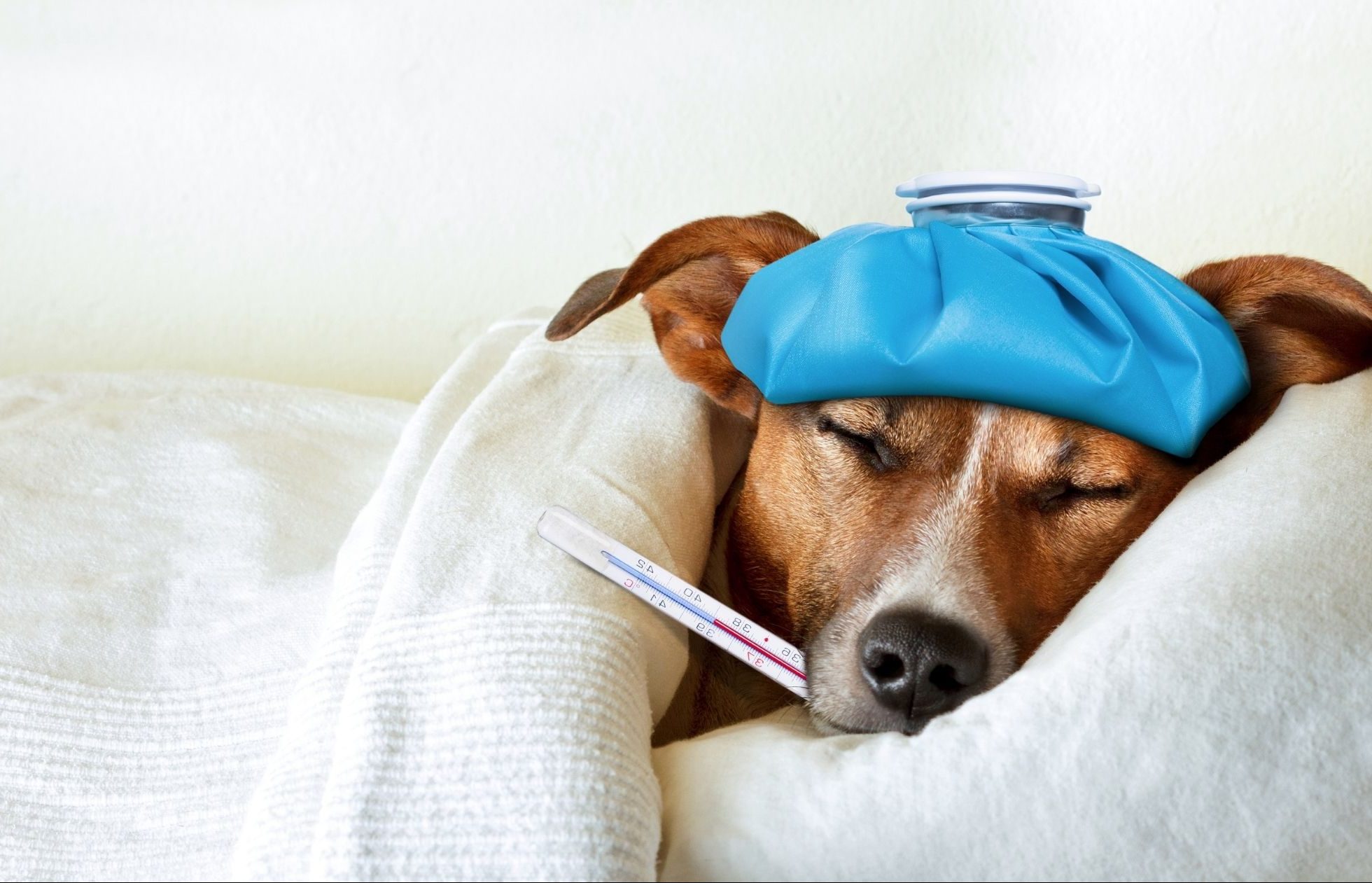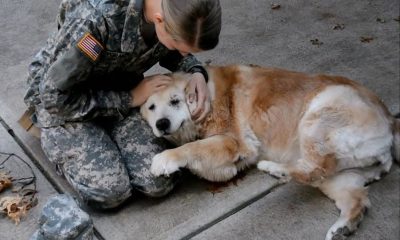Dogs
Is Your Dog Coughing? It Might Be Kennel Cough!

Kennel cough, or canine infectious tracheobronchitis, is the most common respiratory disease in dogs, though it’s rarely serious. Kennel’s cough results from an infection of the dog’s throat and upper respiratory tract. Because your dog can catch kennel cough from other dogs, you want to make sure your dog doesn’t get sick! Here’s how to tell if your dog has kennel cough and what you can do about it.
What is kennel cough?
Kennel cough is a contagious respiratory infection that spreads easily between dogs. Kennel cough is typically not dangerous, but can be spread by contact with infected animals. The symptoms of kennel cough are similar to those of the common cold in humans and range from mild to severe. Some dogs may only have a dry hacking cough while others may have nasal congestion, fever, and labored breathing. Treatment for kennel cough varies depending on the severity of symptoms and can include antibiotics, decongestants, or both. If your dog has been coughing for more than a few days or if you notice any other concerning symptoms such as weight loss or difficulty breathing then it’s best to consult your veterinarian as soon as possible.
How does kennel cough spread?
Kennel cough is a highly contagious respiratory disease that can spread to humans. The bacteria cause it to live in the saliva and nasal secretions of infected dogs and other animals and are transmitted through droplets when an infected animal sneezes or coughs. You can also be exposed by touching surfaces contaminated with kennel cough droplets or by breathing in the dust stirred up by an infected animal’s activity.
You can help prevent kennel cough from spreading in your household by vaccinating all pets, washing your hands often, avoiding contact with animals who might be carrying the bacteria, and having good air circulation in your home.
Can your dog get rid of it on its own?
Kennel cough is a common respiratory infection in dogs. The name refers to the virus that causes it, Bordetella bronchiseptica, which is also found in people. If your dog has been coughing for more than two weeks, take them to the vet because this might be a kennel cough.
Most dogs can get rid of kennel cough on their own without any medical intervention.
When should you take your dog to the vet?
If your dog is coughing, it might have a kennel cough. Kennel cough is a viral infection that affects the upper respiratory system in both dogs and cats. Signs of this condition include fever, discharge from eyes and nose, runny nose or nasal congestion, difficulty breathing, reduced appetite, and lethargy. The good news is that this virus usually clears up on its own after 10 days to two weeks with no need for treatment. However, if you are concerned about the severity of your pet’s symptoms or if they persist beyond 14 days then you should consult with a veterinarian to rule out other conditions such as pneumonia or heart disease which can become serious without treatment.
Preventative measures
There are some ways you can help prevent spreading it to other pets and humans in your home:
1) Keep your pup away from other dogs who have kennel cough, or at least cover his nose and mouth when you interact with them so he doesn’t breathe in their germs.
2) Don’t let other people touch your pup if they’re sick.
3) Make sure all family members wash their hands after handling your pup to avoid giving him new germs.
4) Stay up-to-date on vaccinations for everyone in the house!
5) Contact your vet if you suspect kennel cough – they’ll be able to prescribe antibiotics and recommend a course of action for getting better.
6) And don’t forget about good old-fashioned H2O! Keeping up with hydration will help keep the mucus loose and make coughing less painful.
What are the typical symptoms of kennel cough?
Kennel cough is a respiratory infection that causes symptoms like coughing, sneezing, and runny nose. If your dog has any of these symptoms, it might have a kennel cough. Other symptoms include vomiting and diarrhea, fever, and loss of appetite.
Kennel cough is caused by a virus that is spread by direct contact with an infected animal’s saliva or nasal discharge. This means dogs can get kennel cough from other dogs or from humans who are carriers of the virus but don’t show symptoms themselves. Humans cannot get kennel cough unless they are in contact with an infected animal’s saliva or nasal discharge as well.
What are treatments available for dogs with kennel cough?
The most common treatment for kennel cough is antibiotics. There are many different types, so your vet will help you decide which one to use based on the severity of the symptoms. Antibiotics can be taken orally or in a liquid form directly into your pet’s nose, depending on what’s necessary. In addition to medication, make sure your dog stays hydrated with fresh water and gets plenty of rest while they recover.
Read Also :
Keep your distance: signs that you should keep away from your furry friend
Food Poison in Dogs Symptoms
0 Comments
Leave a Reply
Cancel reply
Dogs
Everything You Need to Know About Neutering for Pets

Lo
Neutering for pets is a common procedure that is important for the long-term health and well-being of your furry friend. Neutering involves surgically removing either the testes or the ovaries and uterus of an animal, usually a dog or cat. There are many benefits to neutering your pet, such as reducing their risk of cancer, controlling their behavior, and preventing unwanted litters. It is recommended that pet neutering be done at a young age, but it can be performed at any time. In this blog post, we will provide all the information you need to know about neutering for pets, including when it should be done and the potential risks involved.
Dogs
What to Do With Your Dog’s Body After Death: A Guide for Pet Owners

My dog died, and I’m not sure what to do with their body. It’s a heartbreaking moment for any pet owner, and the uncertainty of what to do can make it even more difficult. In this blog post, I’ll provide a comprehensive guide for pet owners on what to do with their dog’s body after death. We’ll cover everything from burial and cremation to taxidermy and memorializing your beloved pet. No matter what you decide to do, I hope this article will help you in this tough time and provide you with the resources you need to properly honor your pet’s life.
Dogs
Keep your distance: signs that you should keep away from your furry friend

When your pet displays certain symptoms, it is important to stay away to protect yourself and your pet. If you observe any of the following pet symptoms, it’s best to keep your distance until the issue has been addressed: lethargy, vomiting, diarrhea, excessive scratching or licking, shaking or trembling, sudden changes in appetite, coughing, sneezing, or discharge from the eyes or nose. Taking steps to stay away from your pet during these times will help to ensure the safety of both you and your furry friend.
Coughing and sneezing
Coughing and sneezing are common symptoms that our pets may experience from time to time. Just like us, they can catch colds or suffer from allergies, leading to these respiratory issues. While coughing and sneezing can be relatively harmless, it’s still important to take precautions to protect both you and your furry friend.
When your pet starts coughing or sneezing, keeping your distance is best. This is especially true if they have any other symptoms such as discharge from their nose or eyes, difficulty breathing, or lethargy. Coughing and sneezing can be signs of more serious underlying conditions such as respiratory infections or allergies. In some cases, they may even be contagious to humans, so it’s crucial to avoid close contact until you can consult a veterinarian.
Remember to provide a comfortable and clean environment for your pet to help alleviate their symptoms. Keep an eye out for any changes in their condition, and if their coughing or sneezing worsens or persists, make sure to seek professional help. Taking these precautions will help ensure the well-being of your pet and minimize any potential risks to yourself.
Trending

 Cats1 year ago
Cats1 year agoDon’t Feed Your Cat These 8 Foods!

 Cats11 months ago
Cats11 months agoWhy Do Cats Spray and How Can You Stop Them? Insights into Urine Spraying in Male Cats

 Cats10 months ago
Cats10 months agoThe Ins and Outs of Cat Sterilization: Removing the Female’s Ovaries

 Cats10 months ago
Cats10 months agoPre-Vaccination Prep: Getting Your Cat Ready

 Cats9 months ago
Cats9 months agoWhy Kittens are Born Dead or Deformed

 Dogs2 years ago
Dogs2 years agoSo You’re Thinking About Getting a Poodle

 Dogs10 months ago
Dogs10 months agoWhat to Do With Your Dog’s Body After Death: A Guide for Pet Owners

 Cats9 months ago
Cats9 months agoSigns of Cat Pregnancy Week by Week


















Pingback: Keep your distance: signs that you should keep away from your furry friend
Pingback: Keep your distance: signs that you should keep away from your furry friend